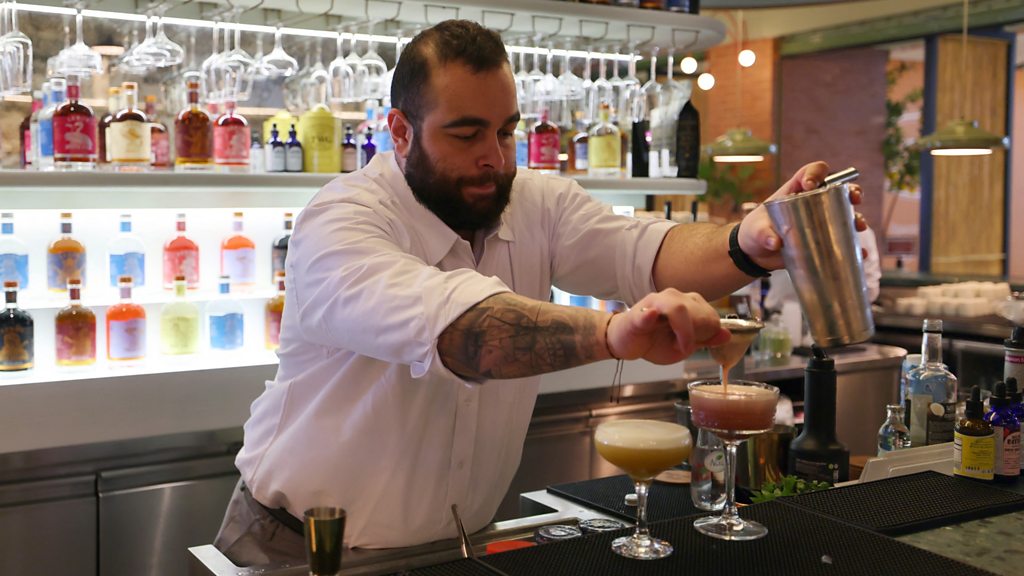There has been a significant cultural shift towards healthier living and mindfulness, leading to an increased interest in non-alcoholic beverages. For those in recovery or anyone choosing to abstain from alcohol for personal, health, or religious reasons.
Non-alcoholic shops have emerged as sanctuaries of choice and celebration. These establishments offer a diverse range of products that allow individuals to enjoy social experiences without the effects of alcohol.
The Rise of Non-Alcoholic Beverages
The non-alcoholic beverage market has exploded in popularity, with a growing variety of options that appeal not only to those in recovery but also to health-conscious consumers. From artisanal non-alcoholic beers to sophisticated mocktails, the market caters to diverse tastes and preferences. This trend reflects a broader societal change that values wellness and moderation over traditional drinking culture.
The Role of Non-Alcoholic Shops
Non-alcoholic shops play a crucial role in this landscape by providing a dedicated space where consumers can explore and purchase a wide variety of non-alcoholic options. These shops offer a curated selection of products that often include:
- Non-Alcoholic Wines: With the growing sophistication of non-alcoholic wines, these shops often stock a range of high-quality brands that mimic the flavors and complexity of traditional wines. This allows wine lovers in recovery to enjoy the experience of sipping on a fine wine without the intoxicating effects.
- Craft Non-Alcoholic Beers: Many breweries are now producing craft non-alcoholic beers that appeal to beer enthusiasts. These beverages maintain the rich flavors and aromas of traditional beers, allowing customers to indulge in their favorite styles without the alcohol.
- Sparkling Beverages: For those looking for something bubbly, non-alcoholic sparkling wines and sodas provide a festive touch to any occasion. These beverages can be enjoyed at celebrations, making them a great alternative for toasts and gatherings.
- Mocktails: Shops often have a selection of ingredients and mixers that make it easy for customers to create their own mocktails. This allows for creativity and personalization, catering to individual tastes.
- Health-Conscious Options: Many shops are focused on wellness, offering kombucha, herbal teas, and infused waters that provide refreshing alternatives while promoting health.
Creating a Sense of Community
Non-alcoholic wines do more than just sell beverages; they foster a sense of community and support among individuals who choose to abstain from alcohol. Many of these establishments host events, tastings, and workshops that bring people together, providing opportunities to socialize in a supportive environment. This is particularly valuable for individuals in recovery, as it helps to create connections and reduce feelings of isolation.
Celebrating Life’s Moments
For many, the social aspect of drinking is intertwined with life’s milestones—birthdays, weddings, holidays, and other celebrations. Alcoholic shops allow individuals to participate fully in these events without the pressure to drink alcohol. The ability to raise a glass of non-alcoholic wine or beer during a toast creates an inclusive atmosphere where everyone can celebrate together.
Supporting Recovery and Wellness
Non-alcoholic shops are often aligned with recovery communities, providing resources and support for individuals on their journey. Many shop owners have personal experiences with recovery and understand the challenges faced by those trying to abstain from alcohol. By offering a safe space and understanding environment, these shops contribute to a healthier lifestyle.
The Future of Non-Alcoholic Shops
As the demand for non-alcoholic products continues to rise, the future of alcoholic shops looks promising. More entrepreneurs are entering the market, bringing innovative products and ideas that challenge traditional perceptions of drinking culture. With an increasing focus on inclusivity and wellness, alcoholic shops are likely to become more mainstream, helping to reshape social norms surrounding alcohol consumption.
Increased Community Engagement
Non-alcoholic shops will continue to foster community engagement through events and gatherings. These spaces will serve as community hubs, offering:
- Workshops and Tastings: Educational events where customers can learn about the art of mixology or the intricacies of non-alcoholic wines and beers.
- Support Groups: For individuals in recovery, shops can partner with local organizations to host support meetings, creating a safe space for conversation and connection.
Conclusion
Non-alcoholic shops are transforming the way people approach drinking culture, providing a haven for those who wish to celebrate life without alcohol. They offer a diverse range of products that cater to various tastes while fostering community and support for individuals in recovery.
As the market continues to grow, these shops are essential in promoting a healthier, more inclusive approach to socializing and celebrating life’s moments. For anyone seeking to enjoy beverages without alcohol, these shops are invaluable resources, helping to redefine what it means to raise a glass and celebrate life.
